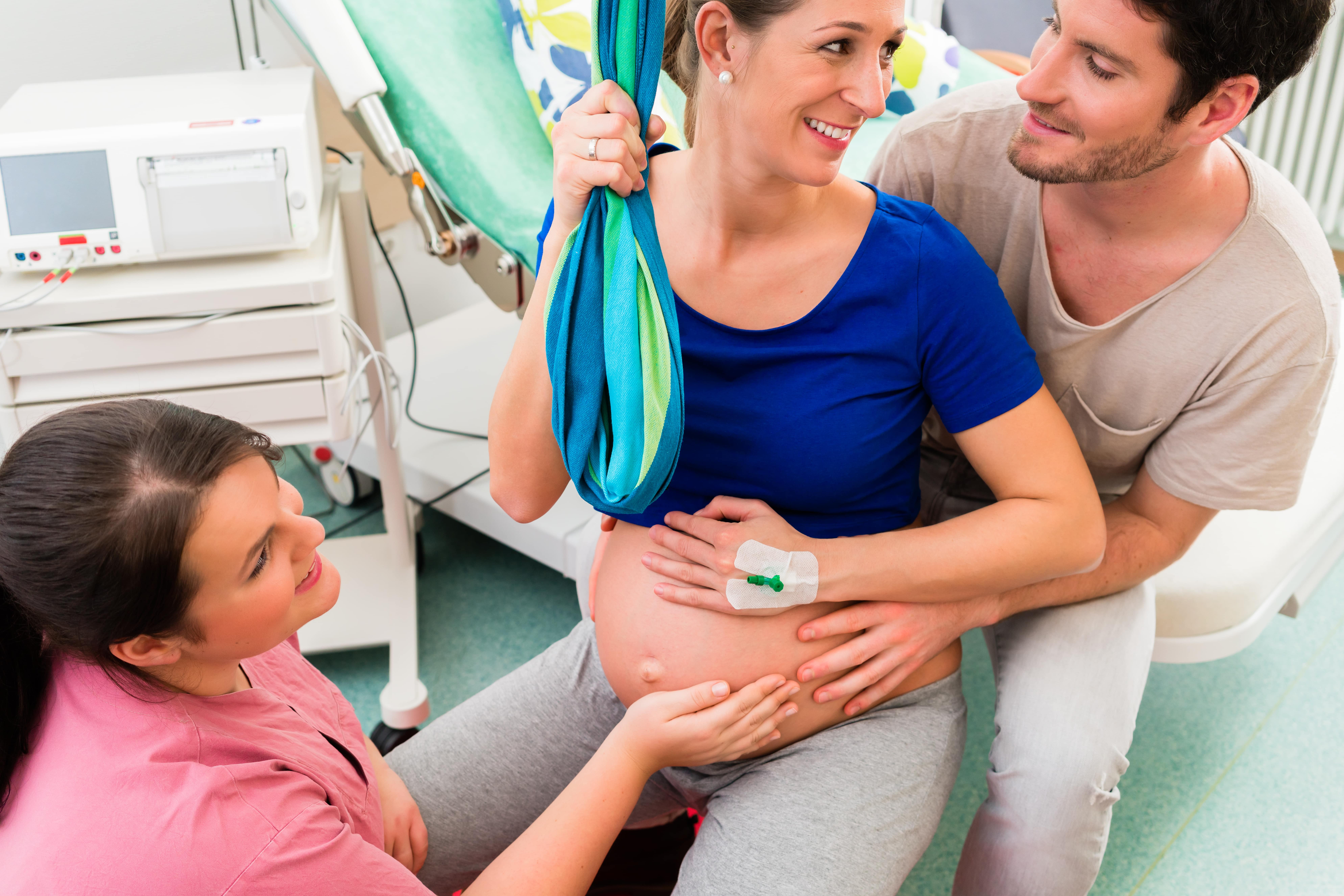As your due date gets closer and closer, so does the decisions about your method of childbirth. There are so many things to plan for before giving birth, but the most important decision of all may be whether you will have a natural or medicated delivery. Each alternative has pros and cons, keep reading to find out which one is best for you and your baby.
Natural childbirth
What is it?
Natural childbirth does not include medical interventions such as cesarean, episiotomies, ventouse, or forceps. Natural childbirth does not involve any sort of anesthetic, either. It can take place in a hospital, at a birthing center, or at home.
Pros and Cons of Natural Childbirth
| Natural Childbirth Pros | Natural Childbirth Cons |
| *Ability to move around. Mother is in control of the process and can listen to her body * Controlled environment with music and other comforts the mother may choose * Ability to choose who is in the room * Freedom to choose where the birth takes place (hospital, home, birthing center) | * More painful than other options * If done outside of a hospital, any complications could put mother and child at risk * Doulas and midwives sometimes have more than one patient at a time, and cannot always guarantee a substitute * Hemorrhoids, tears in the perineum, bowel issues, and urinary incontinence |
Is this the choice for me?
Many moms choose natural childbirth because they believe this will make them feel closer and more connected to their offspring, others are afraid that the effects of the drugs will lead to an emergency cesarean or that medications will be transferred through the placenta and harm the baby. Neither of these claims has been scientifically proven, but the important thing is to follow your instincts. If you and your healthcare provider feel that you can handle childbirth without medication, this might be the option for you.
Medicated childbirth
What is it?
Medicated childbirth refers to any birth that is aided by medication that helps relax parts of the body throughout the process or diminishes the pain at the moment. There are several different types of medications that are typically used during childbirth:
- Epidural – this is localized anesthesia that reduces pain from the waist down. It is administered through the lower back and the amount can be increased or decreased at will.
- Analgesics – these painkillers alleviate pain in the entire body and are usually delivered through an IV tube. They can range from mild medications such as acetaminophen to more potent ones such as Pethidine (similar to morphine)
- Spinal Blocks – the effect of a spinal block is similar to that of an epidural. The medication (typically lidocaine or fentanyl) is injected directly into the spinal fluid, but the effect only lasts about one to two hours.
- Other Options – depending on the doctor and hospital where you choose to have your baby, you might have options such as nitrous oxide, tranquilizers, or in rare cases, general anesthesia.
A 2018 Stanford study showed that 71% of vaginal births are medicated and this figure has been on the rise in the last decade.
Pros and Cons of Medicated childbirth
| Medicated Childbirth Pros | Medicated Childbirth Cons |
| * Labor will be mostly pain-free * You will be in a sterile environment with professionals trained in case of complications or emergencies * Amount of medications can be increased or decreased * If other medications are necessary, the doctor can administer them | * Medication side effects * Epidural and spinal block shots can be very painful * Some intravenous medications could be transferred into the baby and could cause side effects * Less control over the environment your baby is born into |
Is this the choice for me?
Pregnancy is pretty hard on the body as it is, and some women just aren’t prepared for the additional discomfort of labor. Some moms to be, feel most comfortable with the idea of being in a hospital with a doctor, nurses, and full staff on-hand. In fact, many moms feel that pain medication helps take the attention off of the pain and brings them into the moment, thus helping them connect better with their baby. They might believe that it’s necessary to live through the full experience in order to feel completely connected with their partner and their baby.
Your decision
Childbirth is a complex process. Together with your partner and health professional, you’ll have to consider many factors before you decide how your baby will be delivered, including your general health, your pelvic structure and build, your baby’s size, weight, and position as well as your tolerance to pain.
Remember, however, that sometimes even the best plans go away and nature takes a different path than planned. So even if you require an emergency c-section, or you end up needing medication during the birthing process, the important thing is that mom and baby are healthy and safe at the end of the process.
At the end of the day, it’s your decision and you need to make your priorities and plans known to everyone involved: partner, healthcare provider, hospital, or birthing center. You’ll feel better knowing that you have made and informed decisions.








